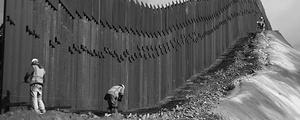PRINCETON, NJ -- About one out of four Americans, including half of Republicans, believe that members of President-elect Barack Obama's staff engaged in illegal activities relating to the charges that Illinois Gov. Rod Blagojevich was trying to profit from naming Obama's replacement in the U.S. Senate. Still, Gallup's latest daily report of the public's confidence in Obama's ability to be a good president is at 68%, near the highest level since he was elected on Nov. 4.
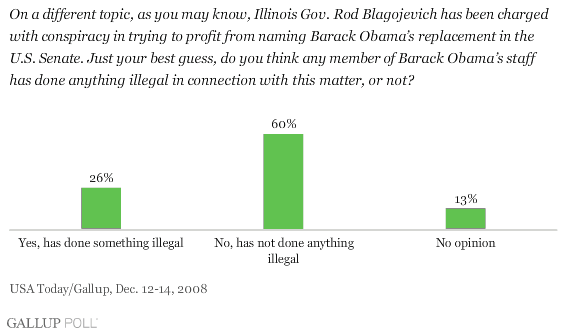
These results are based on the latest USA Today/Gallup poll, conducted Dec. 12-14, which asked a random half-sample whether Obama's staff members did anything illegal in connection with this matter, and the other half whether Obama's staff members did anything unethical. The results show that about the same percentage of Americans interviewed say members of Obama's staff did something unethical as say they did something illegal.
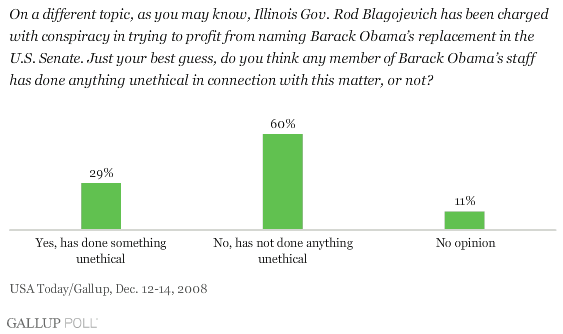
News reports have indicated that Obama dispatched his designated chief of staff, Rahm Emanuel, to contact Blagojevich's staff about possible replacements for Obama once it became clear that Obama would resign his Senate seat after being elected president. However, there have been no charges against any member of Obama's staff, and the president-elect himself has firmly stated that neither he nor any member of his staff has had any improper dealings with Blagojevich in connection with the seat.
Public reactions to the possible involvement of Obama's staff in something either illegal or unethical are highly partisan, as would be expected.
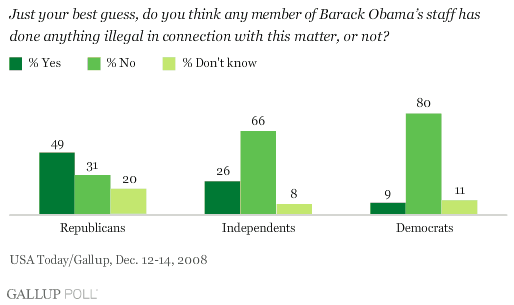
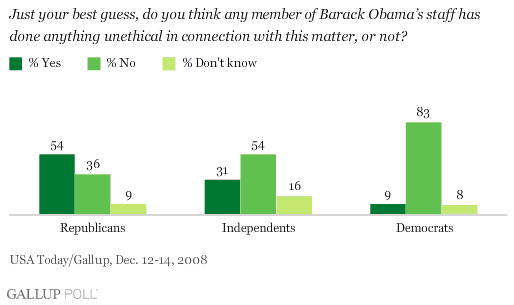
Confidence in Obama Remains High
Despite the news swirling around the Blagojevich situation and any possible connection with Obama, there has been no diminution in the public's high level of confidence in Obama. In Gallup's latest tracking update, based on interviews conducted Friday through Sunday, 68% of Americans say they are confident in Obama's ability to be a good president, near the highest level of confidence since Gallup began tracking this indicator on Nov. 5.
Survey Methods
Results are based on telephone interviews with 1,008 national adults, aged 18 and older, conducted Dec. 12-14, 2008. For results based on the total sample of national adults, one can say with 95% confidence that the maximum margin of sampling error is ±3 percentage points.
Interviews are conducted with respondents on land-line telephones (for respondents with a land-line telephone) and cellular phones (for respondents who are cell-phone only).
In addition to sampling error, question wording and practical difficulties in conducting surveys can introduce error or bias into the findings of public opinion polls.
